Are you tired of seeing your energy bills skyrocket during the summer months? Is your window AC struggling to keep your room cool? Thankfully installing window AC insulation is a time-saving and cost-effective solution. Without proper home insulation, warm air can sneak its way into your room through the gaps around your air conditioner.
Did you know that as much as 25% of your climate-controlled air escapes through gaps around your window AC, windows, doors, ducts, and overhead ventilation? Even the tiniest openings can allow conditioned air to seep out, driving up your cooling costs.
According to the U.S. Department of Energy, a substantial portion of your energy expenses goes toward heating and cooling systems. During the sweltering summer months, your window AC can become the most voracious energy consumer in your household.
In this blog post, we'll guide you through the essential steps to install your window AC insulation properly. By following the manufacturer's instructions for installation, you'll set a solid foundation for an energy-efficient cooling system
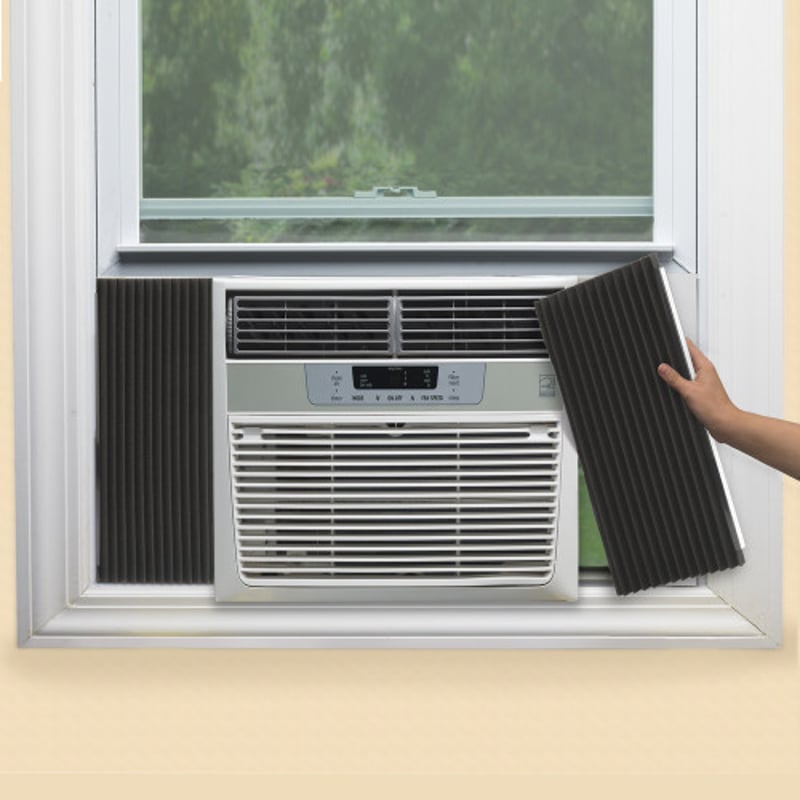
How To Apply Window AC Insulation
Start by insulating the side panels of your window AC's window kit with rigid panels. Styrofoam is an excellent insulator and a budget-friendly choice. Measure the dimensions of the side panels on your window, then cut the styrofoam panels to fit precisely.
Mark a longer piece on the insulation foam before cutting; it can always be compressed to fit. Cutting it too short may cause air leakage
Attach the foam panels to the air conditioner and its sides using HVAC tape for added security. Even if the foam has adhesive, the tape provides extra durability
Alternatively, you can use a large styrofoam panel and cut out a rectangle matching your AC's dimensions. To attach the styrofoam panels to your window kit, you can use either specific styrofoam glue or regular white glue. The lightweight nature of styrofoam means that a simple glue will do the job effectively.
Steps To Insulate A Window AC
- Measure
- Cut the Foam
- Add the Foam Panels
- Cover the AC Unit From the Outside
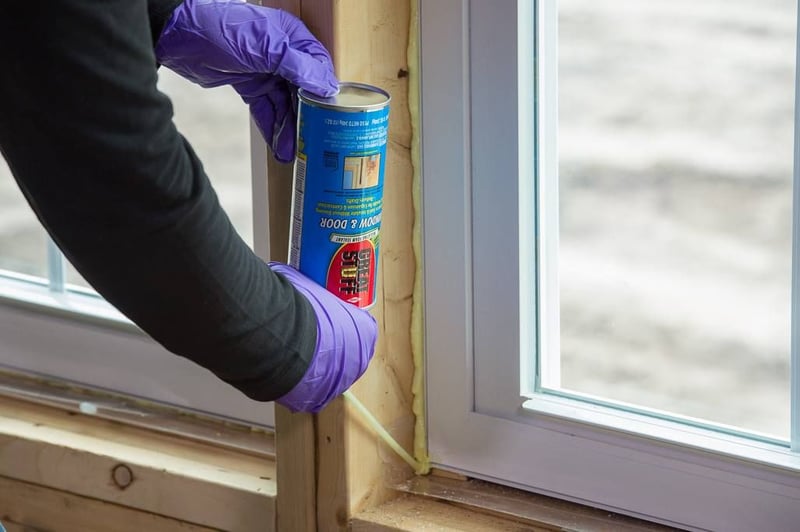
Seal Air Gaps With Spray Foam
With the side panels insulated, it's time to tackle any remaining gaps around the window AC insulation. Spray foam is the ideal solution for closing these gaps. It excels in insulation, effortlessly fills narrow gaps, and expands to fit any space perfectly without exerting pressure.
This makes it suitable for window AC units in both thick and thin window frames. However, if your window and frame are exceptionally thin, a layer of HVAC tape can also get the job done effectively. Insulation seals off any gaps or cracks, ensuring that the cooled air remains inside the room and no warm air infiltrates from outside.
This not only enhances the performance of the AC unit but also improves overall energy efficiency by minimizing wasteful air leakage.
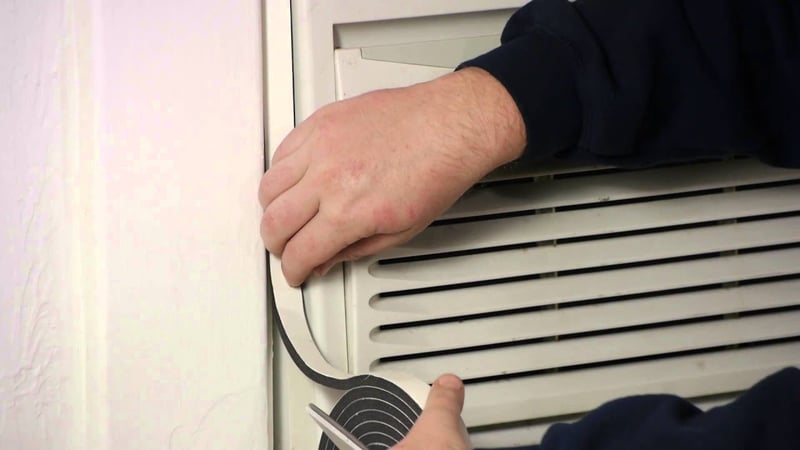
Foam Tape
Most window AC units come with foam tape designed for insulation. This weatherstrip tape, readily available online, is easy to use and adheres well to plastic surfaces. You can use foam tape to insulate the sides around your window AC and below the window. Unlike other insulation methods like spray foam or styrofoam panels, foam tape is subtle and doesn't give your DIY efforts away. Plus, it's a breeze to install, requiring no special skills.
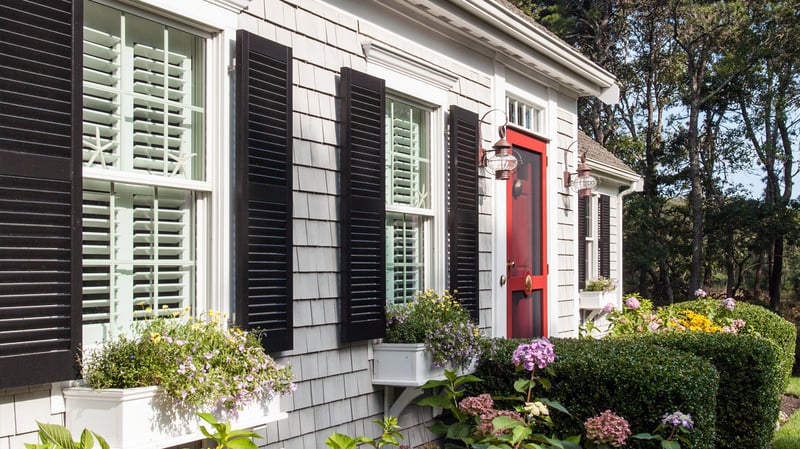
Outdoor Shutters That Open And Close
If you have outdoor shutters on the sunny side of your house, make use of them to reduce heat infiltration. Closing these shutters blocks a substantial amount of heat before it even reaches your room, helping your window AC operate more efficiently.
This simple step requires no complex installation and can significantly lower your AC's power consumption on scorching days.
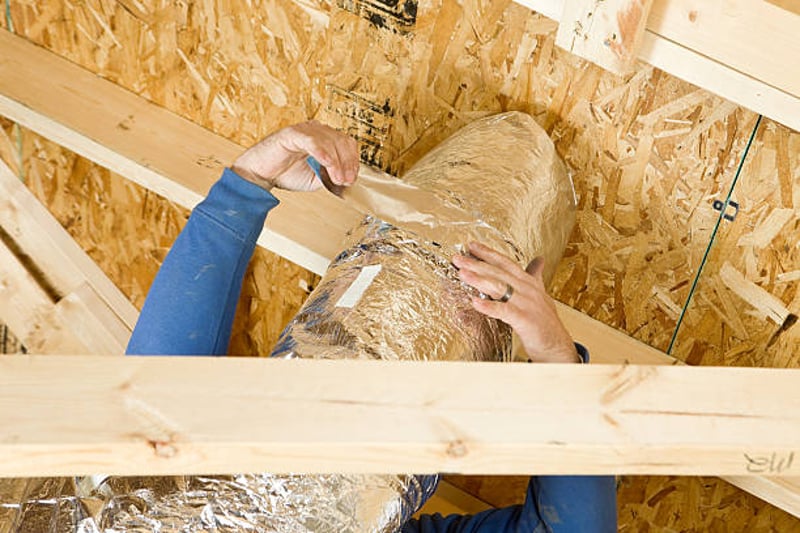
HVAC Tape
Insulate Internal Ducts with HVAC Tape. HVAC tape, typically used for sealing air gaps in HVAC systems, can also be handy for insulating window AC insulation as well. It's particularly useful for sealing cracks in the window AC itself, especially if your unit is aging and showing wear. HVAC tape should be applied directly to the window AC's case, not for gaps between the window and the unit. If you're feeling ambitious, you can even open your window AC and insulate the internal ducts using HVAC tape, further enhancing its efficiency.
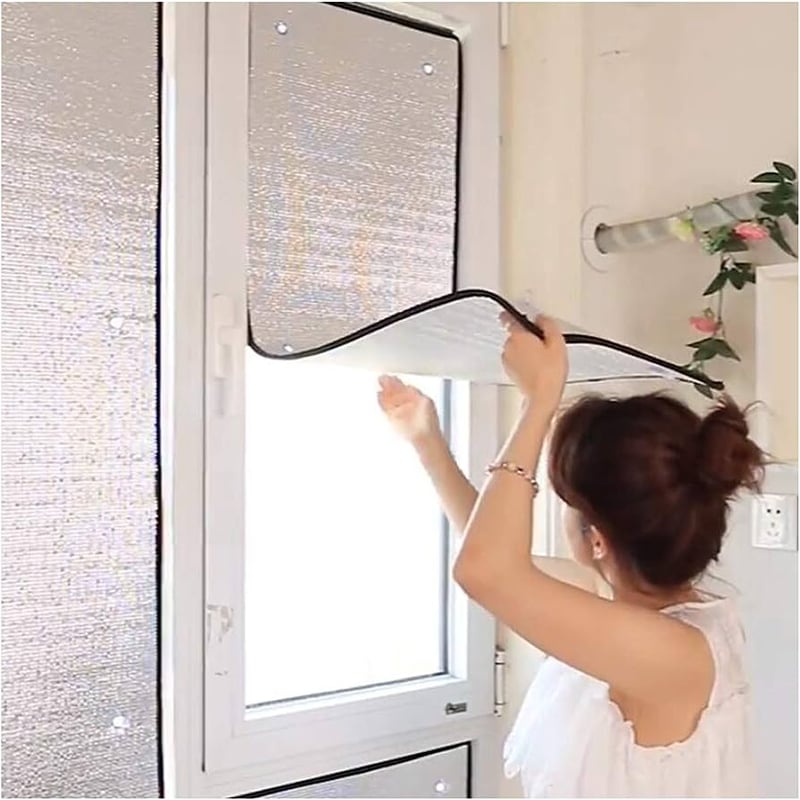
Foil Window Insulation
While not directly related to your window AC, window insulation foil can lower the heat penetrating your window. This adhesive foil is applied to the window, reducing heat transfer. Consider that this method might diffuse light and affect the clarity of your window.
Lastly, It's a trade-off between efficiency and aesthetics, so consider whether it's worth it for your specific situation.
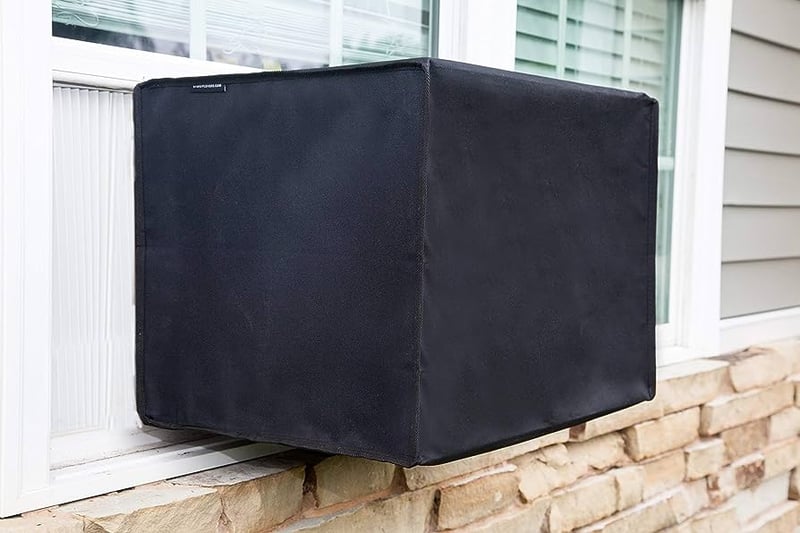
Should I Cover My AC Unit In The Winter
Protect your window air conditioning unit during the winter months by covering it or removing it from the window. This simple step preserves the unit's lifespan, ensuring it's ready to cool your home efficiently when summer returns
Covering your air conditioning unit during winter safeguards it from a range of weather-related threats:
- Leaves
- Debris
- Snow accumulation
- Icicles
- Falling ice,
- Potential water damage from melted snow, trees, gutters, or rain.
This proactive step ensures your unit remains in peak condition.
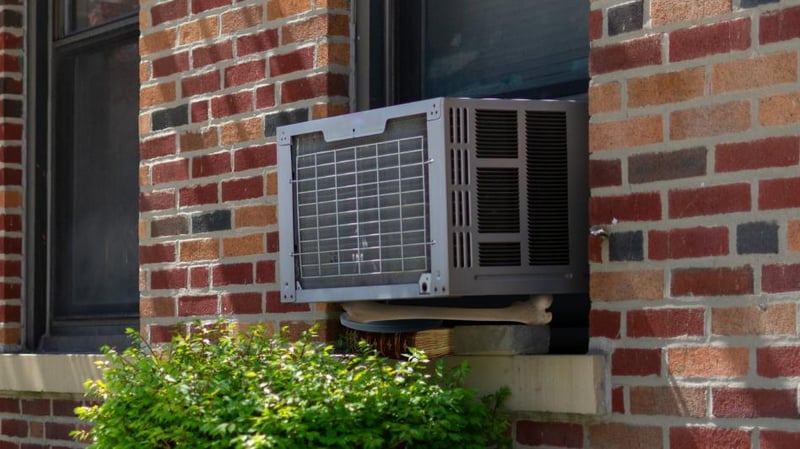
Window AC Insulation Chicago
In the realm of window AC insulation, sealing the gaps around the sides of your unit will yield the most significant efficiency improvement. Foam tape and spray foam insulation Chicago should be your top priorities for closing these gaps effectively.
The other insulation methods we've explored can be considered as additional steps to further enhance efficiency. While window insulation foil can be an option, it might compromise the clarity of your window, so consider the benefits carefully.
By following these steps, you can transform your window air conditioner into a cost-effective and energy-efficient cooling solution.
Upgrade your home's Window AC at Chicago with Green Attic Insulation services.















.svg)
.svg)
.svg)
.svg)
.svg)
.svg)
.svg)
.svg)
.svg)
.svg)
.svg)
.svg)
.svg)
.svg)

.svg)
.svg)
.svg)
.svg)
-1.svg)
.svg)
.svg)





